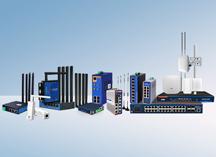In today’s connected world, reliable internet access is more crucial than ever. Whether you’re managing remote systems, powering IoT devices, or providing backup internet in challenging locations, a cellular router delivers a stable and versatile connectivity solution. Unlike traditional routers that rely solely on wired broadband, cellular routers use mobile networks such as 4G LTE or 5G to establish high-speed wireless communication. This makes them indispensable for industries and individuals who need connectivity on the move or in areas without fixed-line infrastructure.
What Is a Cellular Router?
A cellular router is a networking device that uses SIM-based mobile data to provide internet access. Instead of depending on wired connections like DSL or fiber, it connects to the internet through cellular networks, making it highly portable and adaptable.
These routers often come equipped with multiple SIM slots, allowing automatic failover between carriers for uninterrupted connectivity. They’re commonly used in transportation, industrial automation, retail point-of-sale systems, and smart city applications.
How Does a Cellular Router Work?
A cellular router functions similarly to a standard router but connects via cellular networks rather than fixed lines. Here’s a simple breakdown of how it works:
- SIM Card Connection: A SIM card is inserted into the router, allowing it to communicate with a cellular network.
- Network Authentication: The router establishes a secure link using 3G, 4G LTE, or 5G technology.
- Internet Access Sharing: It distributes internet access to connected devices via Wi-Fi or Ethernet ports.
- Failover and Load Balancing: Many models support multiple connections to ensure uptime and optimized bandwidth.
This flexibility makes cellular routers ideal for remote monitoring, emergency response, and vehicle fleet management.
Key Benefits of Using a Cellular Router
1. Reliable Connectivity Anywhere
A cellular router offers network independence, functioning wherever mobile coverage exists—urban centers, rural areas, or even offshore operations.
2. Easy Deployment and Mobility
Because they rely on SIM cards instead of wired setups, cellular routers are quick to install and easy to relocate, making them ideal for temporary setups or mobile units.
3. Secure Data Transmission
Advanced models include VPN support, firewalls, and encryption, ensuring that transmitted data remains safe across public networks.
4. Cost-Effective Redundancy
As a failover option, a cellular router provides backup connectivity when primary broadband services go down, minimizing business downtime.
Common Applications of Cellular Routers
1. Industrial Automation
Factories and remote sites rely on cellular routers to connect sensors, PLCs, and monitoring systems without running expensive cables.
2. Transportation and Fleet Management
Cellular routers enable real-time vehicle tracking, navigation updates, and onboard Wi-Fi services for logistics companies.
3. Smart City Infrastructure
Public surveillance cameras, parking meters, and environmental sensors use cellular connectivity for efficient data transmission.
4. Retail and Banking
POS systems in mobile or pop-up locations depend on cellular routers for secure transaction processing and reliable uptime.
Factors to Consider When Choosing a Cellular Router
When selecting a cellular router, consider the following:
- Network Compatibility: Ensure support for LTE and emerging 5G bands.
- Speed and Throughput: Choose based on your data requirements.
- Security Features: Look for VPN, firewall, and data encryption.
- Connectivity Options: Ethernet, Wi-Fi, serial ports, and dual SIMs for redundancy.
- Industrial-Grade Durability: For harsh environments, opt for rugged models with extended temperature tolerance.
Setting Up a Cellular Router: Step-by-Step Guide
- Insert SIM Card(s): Place the active SIM into the designated slot.
- Power On the Router: Connect it to a power source and wait for it to boot.
- Access Configuration Interface: Usually through a web browser using the router’s IP address.
- Set APN and Network Parameters: Configure according to your service provider’s details.
- Connect Devices: Link computers or IoT devices via Ethernet or Wi-Fi.
- Test Internet Connection: Verify speed, latency, and failover if applicable.
This straightforward process makes deployment quick and efficient, especially in field operations or mobile systems.
Why Cellular Routers Are Essential for IoT
The Internet of Things (IoT) thrives on seamless, always-on connectivity. A cellular router ensures IoT devices stay connected even in environments without wired internet. Whether it’s monitoring agricultural equipment, tracking shipments, or managing utilities, cellular routers provide dependable, real-time communication.
They also support cloud-based platforms, enabling remote control and analytics from anywhere in the world. This makes them the backbone of many industrial IoT solutions.
Final Thoughts
A cellular router is more than just an internet device—it’s a versatile, secure, and scalable connectivity solution for modern digital infrastructure. Its ability to provide stable communication across remote and mobile environments makes it essential for businesses and industries that rely on uninterrupted data transmission.
Whether you’re deploying IoT networks, maintaining remote site operations, or seeking a reliable backup connection, a well-chosen cellular router delivers the performance and reliability you need.
FAQs
- What is the difference between a cellular router and a traditional router?
A traditional router uses wired connections like fiber or DSL, while a cellular router connects to mobile networks using a SIM card. - Can I use a cellular router for home internet?
Yes, especially in areas with weak broadband availability. It can serve as your primary or backup internet connection. - Do cellular routers support 5G?
Many modern routers are 5G-compatible, offering faster speeds and lower latency for advanced applications. - Are cellular routers secure?
Yes. They typically support VPNs, firewalls, and encryption protocols to ensure data privacy and protection. - How much data does a cellular router use?
Data usage depends on your connected devices and activities—streaming, remote monitoring, and file transfers all impact consumption.

